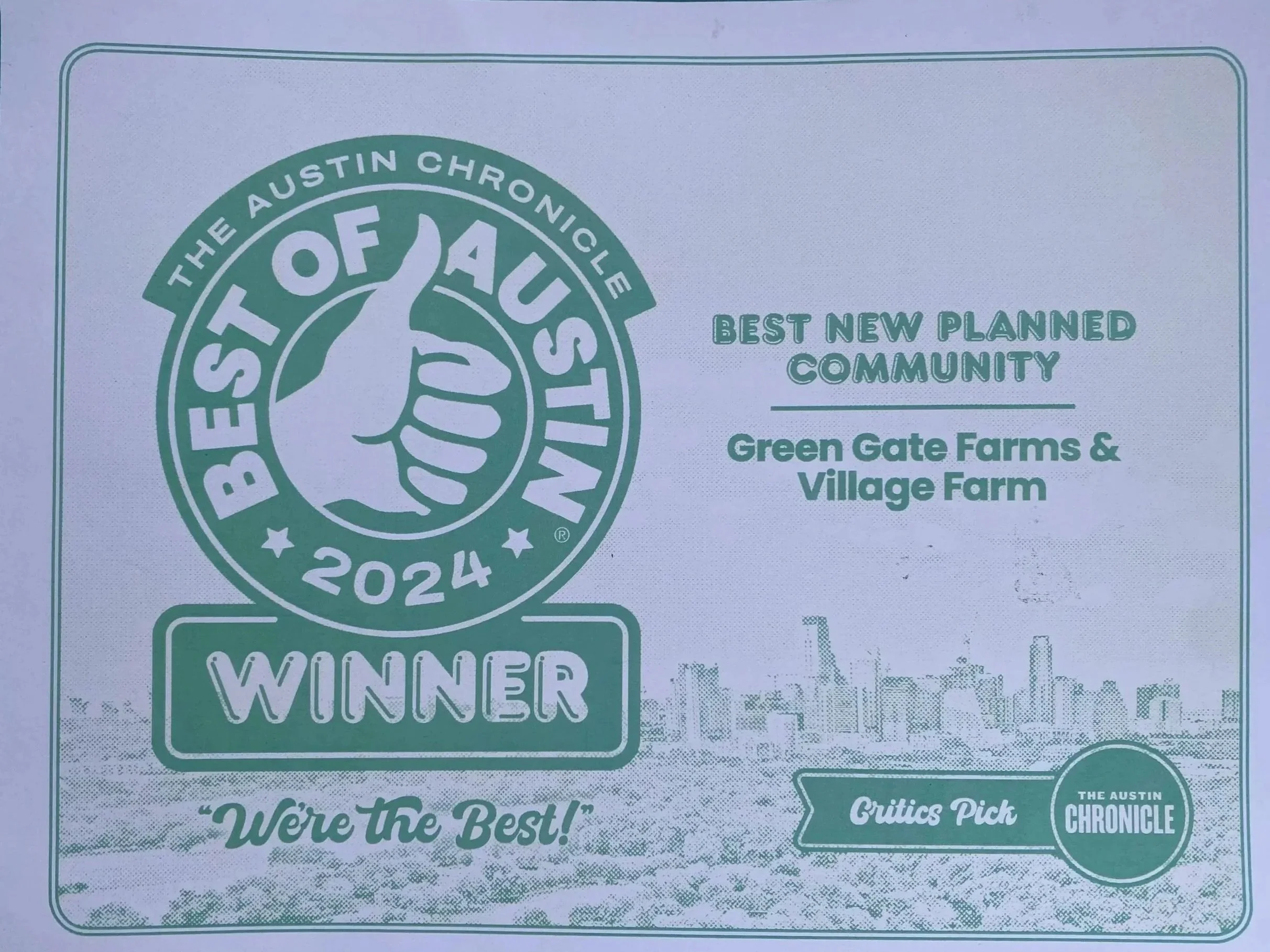
We believe farm-centered neighborhoods are the answer to many societal issues. Agrarian neighborhoods can:
Easily adapt to climate and other emergencies-During the two-year Pandemic, farmers were considered essential workers so our farm continued to operate, feeding and flowering our neighbors without interruption. Having customers living beside the farm made food distribution and access easy.
Increase food security - When the entire state of Texas froze for the first time during 2021 Winter Storm Uri, our neighbors had a better option than empty grocery store shelves: they could walk over to the farm to shop and glean from our frozen fields. After the storm, we worked with our neighbors to plant a now 70-tree fruit orchard because our goal is to offer as many food options as possible. With the construction of a new farm stand building (designed by the developer Roberts Communities in 2016), local foods can be available every day, all day with access to refrigerated items like prepared meals, meat, dairy, veg, flowers, fruit, packaged goods and more.
Reduce loneliness - The tiny home, farm-centered community here is designed with porches, pocket gardens, a Community Garden (60+ allotment plots available Fall 2025), access to a modern clubhouse for events, a farmhouse for small groups and a community chicken coop housed in one of the original 1902 farm outbuildings. In addition our farm partners with residents to create monthly social gatherings — Homestead Club, First Thursday Socials, Weekly Yoga, Earth Day celebrations and more — so neighbors can easily become friends.
Create a new career path for farmers - More farmers are urgently needed and farm-centered communities are a perfect place to raise a new crop of well-trained professional farmers. A well-designed agrarian neighhood ensures that farmers are more likely to succeed because they have housing, reliable markets, and land dedicated to food production. Best of all, this kind of farm improves the quality of life for farm families, who are often forced to live far from good schools and cultural opportunities due to the lack of affordable farmland.
In time, agrarian neighborhoods may help shape new opportunities for farmers by creating:
Municipal farmers, who, like any other professional employees and essential workers, are paid a fair wage, receive paid vacations and benefits similar to those enjoyed by firefighters, police officers and other workers critical to the health and safety of a community.
Mentoring farmers, who are contracted to train and ensure there are a ready supply of local farmers with specialized skills that neighborhoods designed with farms often require. In addition to growing the highest quality food possible, these farmers will also need skills in conveying ecological practices, community relations, educational programming. (Learn about our new three-year partnership with Farmshare, Austin’s leading farmer training program!)
Preserve precious farmland - Austin is losing 17 acres of your farmland every day. Innovative methods are needed to ensure that prime farmland remains protected and productive. And that means more people who want to farm can and you don’t have to depend on shipments from Mexico or China for your next meal.
Provide daily access to beauty and nature - Happiness improves when your day begins with bird song, when fruit trees are near your doorstep, and when your landscape feeds butterflies and other pollinators. Well-designed farm-centered communities will ensure that Austin and its violet crown remain beautiful.
Agrarian Neighborhoods/Development Supported Agriculture can transform neighborhoods — Twenty years ago, Steve and Marie Nygren were two very successful chefs intent on saving 1,400 acres of farmland south of Atlanta. They accomplished this by creating Serenbe, a development-supported agriculture neighborhood that put food production and nature first. Today, Serenbe, features a 25-acre farm and has served as the jewel in the crown for upscale food-centered neighborhoods.
We believe this model of combining food production with sustainable, affordable should be available to all. That’s why we encourage you to advocate for city-supported agriculture! Everyone should have the opportunity to live in well-designed, affordable neighborhoods that are resilient, beautiful and productive. Encourage your elected officials to create policies that integrate food and housing to ensure that more neighborhoods are designed to support health, wellness and natural beauty.
